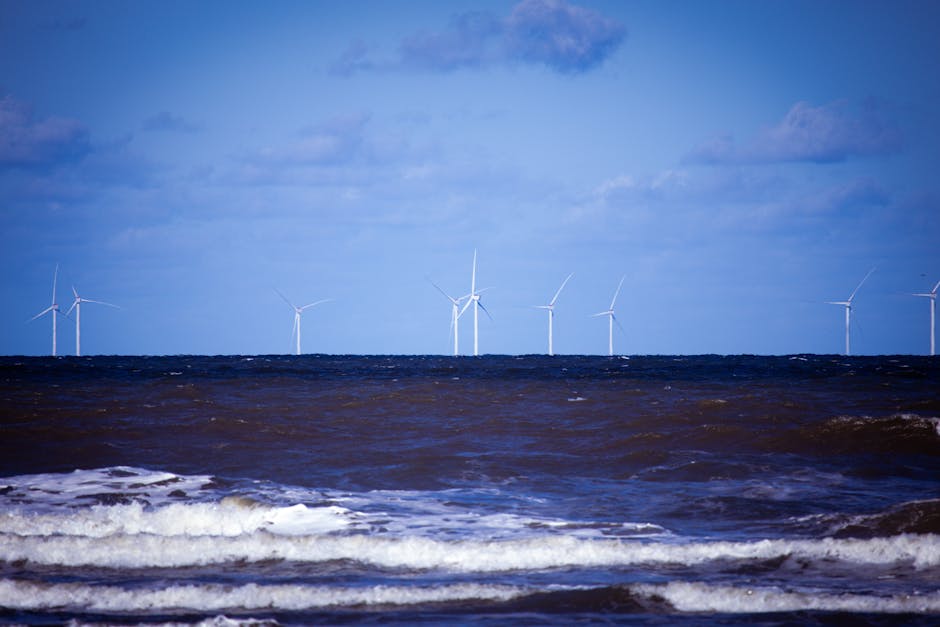The vast expanse of the ocean holds a treasure trove of resources, crucial for human well-being and the intricate web of marine life. From seafood to minerals, pharmaceuticals to energy, marine resources offer numerous benefits. However, unchecked exploitation poses a significant threat to ocean ecosystems and their capacity to sustain these resources for future generations. This article explores the critical question: are there sustainable approaches to utilizing marine resources, ensuring both human needs and the health of the ocean’s biodiversity?
A fundamental aspect of sustainable marine resource management lies in comprehending the complex ecological interactions within marine ecosystems. Understanding the delicate balance between species, their roles in the food web, and the interconnectedness of various marine environments is paramount. Overfishing, for instance, can trigger cascading effects throughout the entire food chain, decimating fish populations and disrupting the delicate equilibrium of coral reefs or kelp forests. Likewise, marine pollution from various sources, including industrial discharge, agricultural runoff, and plastic debris, can have devastating consequences on sensitive marine habitats, reducing biodiversity and impacting crucial ecosystem services.
A multifaceted approach to sustainable marine resource utilization is required. A primary focus must be on responsible fisheries management. This involves implementing stringent catch limits and size restrictions, as well as promoting selective fishing techniques that minimize bycatch the unintentional capture of non-target species. Moreover, the establishment of marine protected areas (MPAs) can play a crucial role in safeguarding vital habitats and fostering the recovery of depleted fish populations. Strategic location of MPAs, considering factors like ocean currents, migratory routes, and critical spawning grounds, is essential for effective conservation.
A vital step towards responsible marine resource use is the development and implementation of robust monitoring and assessment programs. Continuous monitoring of fish stocks, water quality, and marine habitat health allows for real-time data collection and informed decision-making. Scientists employ various methodologies, including remote sensing, acoustic surveys, and biological sampling, to gather comprehensive data about marine ecosystems. This data-driven approach empowers management bodies to adapt policies in response to changing environmental conditions and to identify emerging threats.
Transitioning to sustainable aquaculture practices represents another crucial aspect of responsible resource management. Sustainable aquaculture farms strive to minimize environmental impacts through careful site selection, waste management strategies, and the use of locally sourced feed. Integrated multi-trophic aquaculture (IMTA), which integrates fish farming with other marine organisms like seaweed or shellfish, is a promising approach to reduce reliance on external inputs and maximize resource utilization within the farming system.
Beyond fisheries, extracting minerals from the seabed or harnessing marine energy sources presents additional challenges for sustainable resource management. Deep-sea mining, for example, poses a significant threat to fragile deep-sea ecosystems, potentially disrupting the delicate balance of species interactions and causing severe habitat damage. Exploration and extraction methods need to be meticulously assessed and developed with the environment’s sensitivity in mind, implementing advanced technologies and protocols to minimize harm and maximize responsible resource extraction. Marine energy sources, such as wave and tidal power, hold considerable promise for a sustainable future but require careful planning to avoid disrupting marine life and coastal environments. Careful consideration needs to be given to the potential effects on marine mammals, fish migrations, and benthic communities.
Furthermore, public awareness and education play a significant role in promoting sustainable practices. Educating the public about the importance of marine conservation and the consequences of unsustainable practices is fundamental for fostering support for these initiatives. Consumer awareness concerning seafood choices and the environmental impact of various fishing practices is a powerful tool for promoting sustainable consumption patterns. Engaging communities directly involved with marine resources, including fishermen, coastal communities, and local stakeholders, through participatory approaches, is critical for achieving successful implementation of management strategies.
International cooperation and collaboration are essential for tackling the complex global challenges related to sustainable marine resource management. Sharing knowledge, experiences, and best practices across different regions facilitates the development of effective conservation policies and promotes the establishment of transboundary marine protected areas. Joint research endeavors and collaborative monitoring efforts are pivotal for addressing the shared responsibility for the health of our oceans.
In conclusion, realizing the full potential of marine resources while preserving the health of our oceans requires a comprehensive and multifaceted approach. Sustainable strategies encompass responsible fisheries management, the establishment of marine protected areas, robust monitoring and assessment programs, environmentally sound aquaculture practices, careful consideration of deep-sea mining and marine energy extraction, public engagement and education, and international collaboration. By embracing these principles, we can strive towards a future where the ocean’s bounty is harvested responsibly, ensuring its benefits for present and future generations, while safeguarding the invaluable biodiversity and ecosystem services it provides. The path towards a sustainable future for marine resources is paved with careful consideration, diligent action, and a profound respect for the ocean’s intricate web of life.
